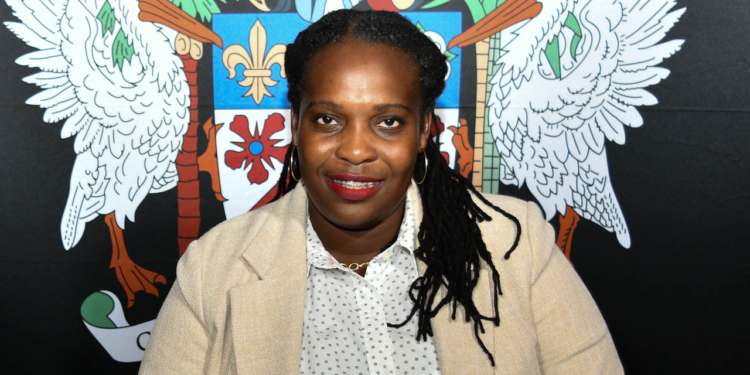Basseterre, St. Kitts, April 12, 2024 (SKNIS): During a recent visit to the Conaree Landfill, overseen by the Solid Waste Management Corporation (SWMC), Minister of Environment, the Honourable Dr. Joyelle Clarke, alongside Director of Environment, Derionne Edmeade, and other key stakeholders, underscored the critical environmental and economic challenges posed by the current waste management practices. The site visit, which revealed alarming accumulations of plastic waste, highlighted the urgent need for sustainable solutions.
“What we are pushing is recycling. We must find a way to prevent these items from going back into the environment, into the landfill, Dr. Clarke emphasised, while appearing on the April 10 edition of InFocus. “There is money in garbage, there is energy in garbage, and we just have to extract that with the right partnerships.”
The minister also addressed the upcoming ban on the manufacturing, commercial importation, and retail distribution of single-use plastics, set to commence on December 31, 2024. Dr. Clarke said that this initiative marks a significant move towards tackling plastic pollution, with SWMC playing a pivotal role in managing and reducing plastic waste.
“Solid Waste is critical in the ban on plastics because the landfill is already chock full with our own garbage, and then there are more cells of plastic bottles that need to be baled and shipped out,” stated the minister of environment.
Highlighting a collaborative approach, Dr. Clarke detailed recent engagements with the Rotary Club, focusing on innovative recycling initiatives. She explained that discussions centred on initiating the recycling of plastic bottles to produce pellets for further uses, emphasising the importance of partnerships
Furthermore, the Federal Cabinet has directed the Ministry of Environment and SWMC to work in close collaboration with the Ministry of Foreign Affairs to develop waste-to-energy solutions. This initiative, Dr. Clarke said, aims to eliminate the need for future landfills, aligning with commitments outlined in the country’s updated National Physical Development Plan to avoid establishing any new landfill sites across St. Kitts and Nevis.
Dr. Clarke emphasised the simultaneous necessity of banning and recycling, explaining that these processes must function in tandem for effective waste management. She pointed out that certain items must be completely banned as they are unmanageable on a national scale. Additionally, she stressed the importance of fostering behavioural changes such as recycling, collecting, and sorting to support these initiatives.
Commending the Ministry of Education’s role in advancing the recycling agenda, Minister Clarke highlighted the proactive efforts of students in separating and preparing plastic bottles for baling and shipping.
She further emphasised the pivotal role of bans in addressing the challenges posed by single-use plastics within federal projects.
“The bans were essential, not just because we need to meet international obligations, but for St. Kitts and Nevis, this federal project needed to respond to the huge amount of unusable single-use plastics,” she explained. “SWMC cannot take anymore so our attitude towards garbage, waste and how we send garbage over there [to the landfill] has to adjust now including our behaviour.”
She added that banning single-use plastic is a comprehensive approach that not only addresses immediate environmental concerns but also sets a sustainable path forward for St. Kitts and Nevis, ensuring a healthier and more prosperous future for all.
-30-









